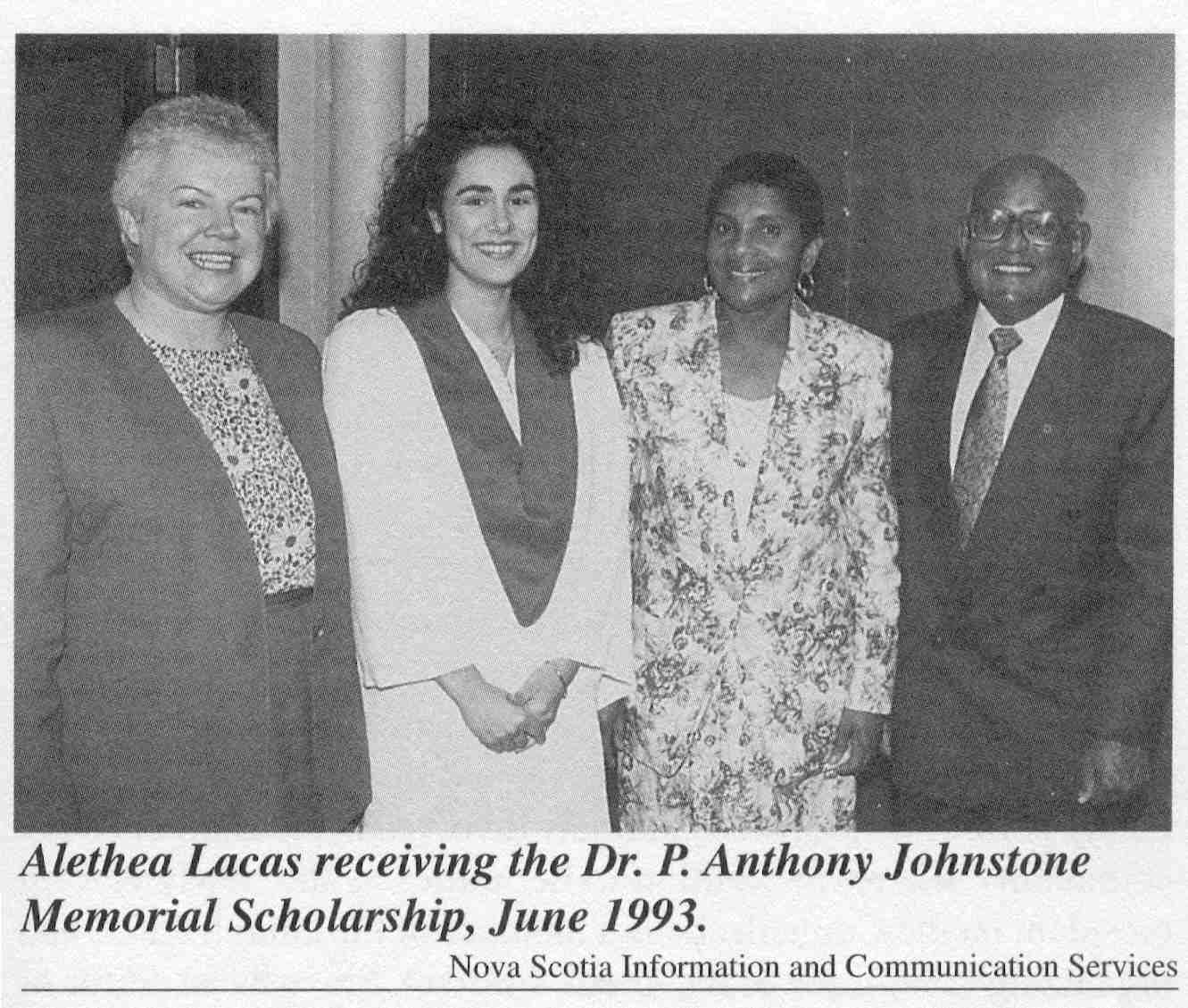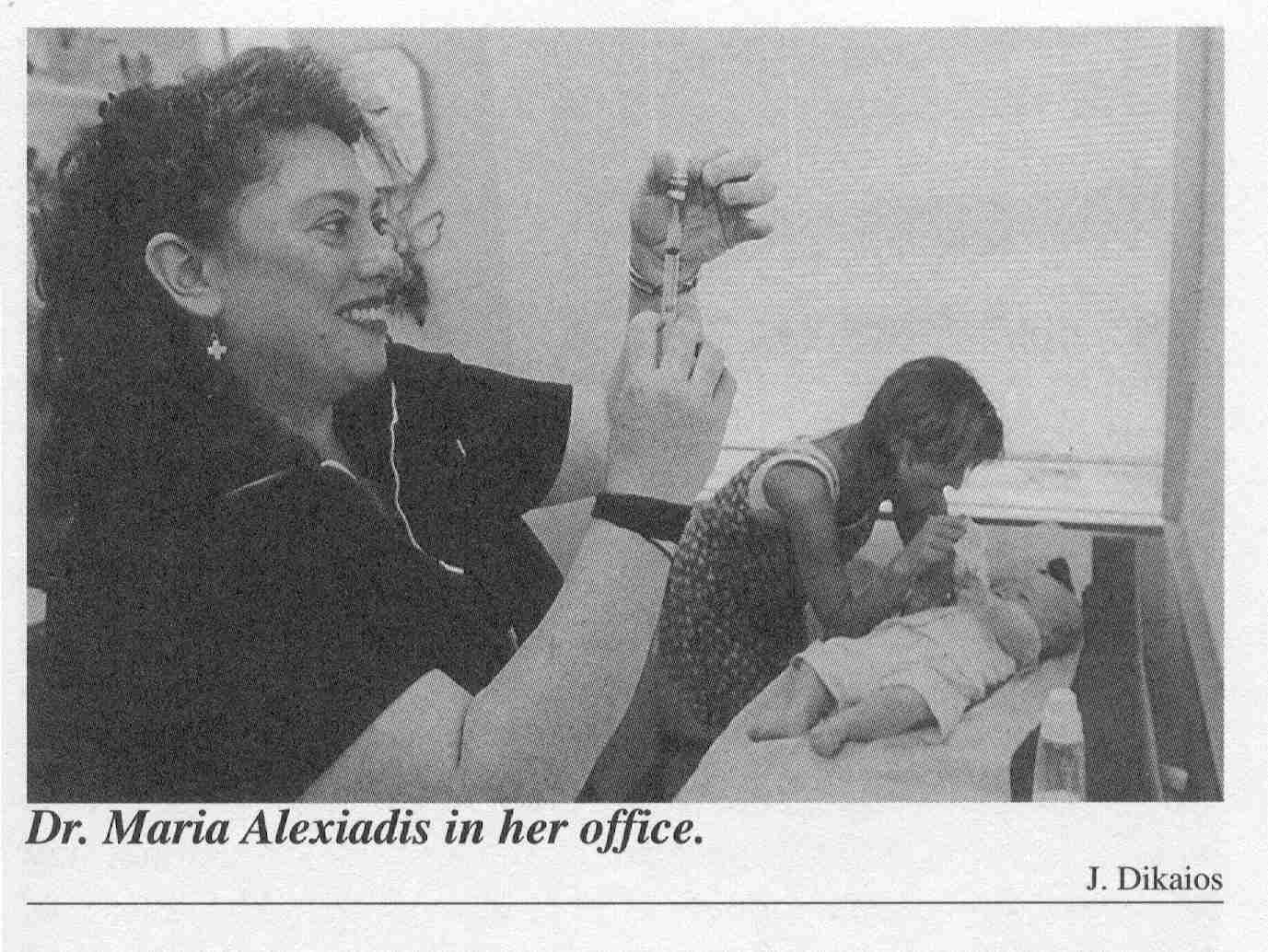V.2 The
Post Education Generation
Late in 1999 we conducted about
fifteen interviews with young adults in the Halifax area who had finished their education
and started careers and homes for themselves. They ranged in age between twenty-five to forty. Several individuals were very involved with
the Greek community, while others had little or no involvement. Travel to Greece was
either a future plan or a frequent event in their lives. Almost all identified
themselves as “Greek Canadian” and spoke fondly about their Greek backgrounds.
As individuals they said that they had no intention of being assimilated
completely into the larger Canadian society, although they felt very much a
part of that society.
Reading through the interviews, the author
was struck by certain reoccurring patterns and remarks. All of the people
interviewed had completed high school, and most had gone on to some sort of
post-secondary education. Several had
two or more university degrees. In many
cases the young adults were moving away from the traditional restaurants and
diners into skilled trades and professions.
For example, in 1999 Julia Tsuros, who has a
degree in Early Childhood Education, opened her own Infant Centre because, “I
love children and I thought I would try it as a career. Now I know that I love what I am doing for a
living.” Others were helping to turn the
traditional, small family businesses into large, complex operations. Ship Shape Laundry and Dry Cleaning is a good
example of a longtime family business that has expanded tremendously in recent
years under the direction of the younger members of the Xidos
family. Started in the 1960s by Nick and Antonia Xidos,
most of the operation today is directed by their two sons, Dino and Mike, and
by their daughter, Cathy Mavrogiannis. Ship Shape now has a fleet of six vans, it collects dry cleaning and laundry from all over the
Halifax Regional Municipality,
and has numerous large government and university contracts.
As a group the
younger Greeks are marrying later than their parents, although almost all said they
would like to be married at some point and have their own families. They lead
very busy lives, juggling careers, families, church, and leisure time
activities. To illustrate
that point we look briefly here at three individuals from Halifax whose lives contain all those
elements. They are Maria Alexiadis, Costa Elles, and
Joanna Kanellakos.
Dr. Maria Alexiadis is a family physician in Halifax. She enjoys sports such as soccer, kayaking,
and hiking. Like her whole family before
her, Maria is extremely involved in the Halifax Greek community where, in
addition to her duties as the newly elected president on the Council, she is a
member of the church choir, and organizing committee of the Greek
Festival. She was an editor of St. George’s 1985 Year
Book, and served as an advisor to the church youth
group, GOYA. She is the local representative on the Diocesan Church Council for
the whole Canadian Orthodox Church. Dr. Alexiadis has
done several medical lectures for the Greek community in Halifax, and is frequently asked to do radio
and television interviews about Greek traditions for Christmas and Easter.
Costa Elles is a son of a former priest at St. George’s, Rev. Charalambos Elles. He is a
marketing sales executive and graduate of Saint Mary’s University who has often
been an invited guest speaker for university gatherings, especially those
involving career planning for students.
Costa has always been personally active in sports. He is presently a member of the executive of
Squash Nova Scotia. He is also on the executive of the Nova Scotia Soccer
Association that oversees soccer programs for adults and children all over the
province. Costa said that as a vice-president of the Greek community he attends
all functions of the community. “I am
involved with everything there. The generation before us worked very hard in
order for us to have our Greek Church and hall.
Therefore I am very grateful for all they have offered to us, and I feel
that it is my time now to offer something back to the Greek community.”
Joanna Kanellakos, whose family is profiled in Chapter VI of this
book, is a Halifax
schoolteacher. Like Maria and Costa, Joanna is active in sports, particularly
in running, power walking, and step aerobics.
She hopes to upgrade her teaching license and possibly take a Master’s
Degree. For years she has helped with
the Greek Festival as a member of the steering committee, in advertising the
Festival, and as a multifaceted worker on the actual days of the Festival. She is a Sunday schoolteacher and an advisor
for various youth groups in the Greek Church.
Not all those
interviewed are, or wanted to be, as involved in the Greek community as Maria
Alexiadis, Costa Elles, and Joanna Kanellakos. Some
explained that distance as a personal need to move forward in their careers or
to look after young children. Two or
three made this sort of remark: “At this
point I do not participate much in the Greek community because the older
generation does not accept our ideas easily.
Perhaps I’ll be more involved when our children are older.”
These young
adults were asked to identify the positive features they felt in being part of
the Halifax Greek community. They were
also asked to comment upon challenges for the community’s future. Andreas Gavas said: “I’m very proud to have such a strong cultural
background. It has helped me find out
who I am, and how I should measure success in life. My family is so important to me, because they
understand me and help me understand what it means to be Greek Canadian.”
Almost all these
young adults mentioned with concern the number of educated young Greeks who are
leaving the region to find employment and greater opportunities elsewhere.
Several thought that more marriages to non-Greeks would produce a next
generation who are more “Canadianized” and less
Greek. Several people in the interviews
said, “We are in a period of transition.” Maria Alexiadis
commented, “We want to get younger people involved but it is difficult because
of the struggle of old and new ideas. Sometimes the younger Greeks feel
frustrated because they think that the older generation will not let them take
charge.” Mariana Veletas worried because, “We are not
as tight a community as we used to be.
On the positive side I feel we have become more open to “English” Halifax.”
Most of these
younger Greeks wanted to thank their parents’ and grandparents’ generation
who had worked so hard to acquire security and a good standard of living for
all of them. Now, they said, they would like to see members of the community
put less emphasis on material values and the intense competition which so
often still characterizes Canadian Greek life. It seemed to the author that
Joanna Kanellakos clearly summarized the views of many of her generation:
“Growing up as a young person who was part of two communities, the Greek and
the wider Canadian community, made for a very busy life. We had to participate equally in both Canadian
and Greek functions. But looking back
now, I do not regret that kind of life style because I got the opportunity
to learn about my Greek background and culture, and maintain my Greek identity,
while also being a Canadian.”



